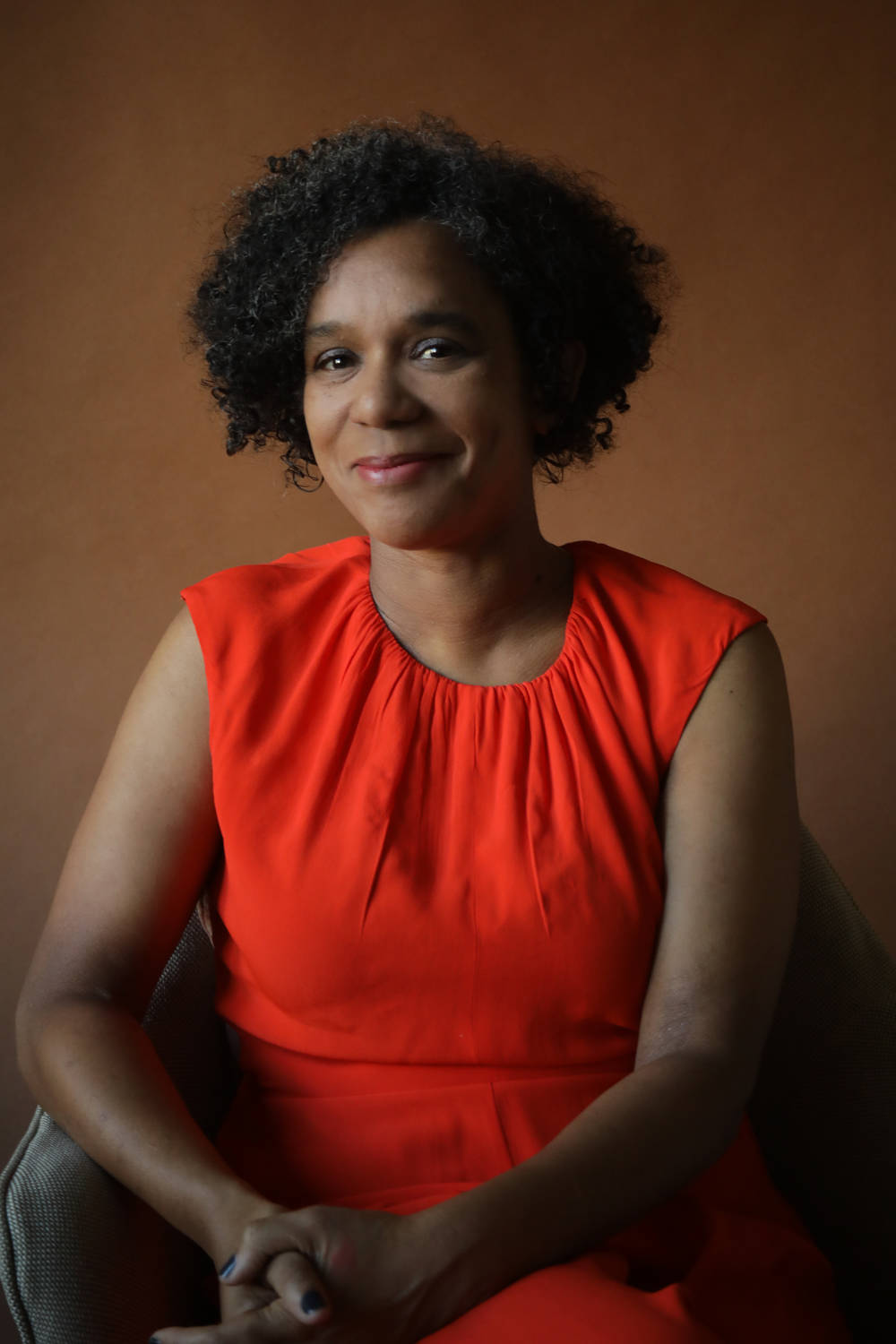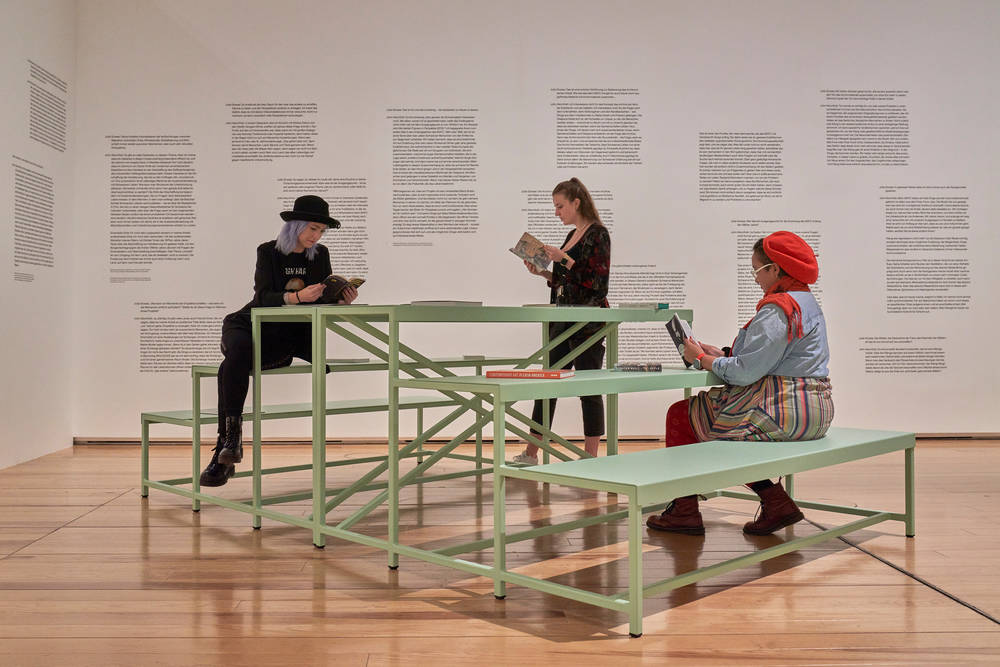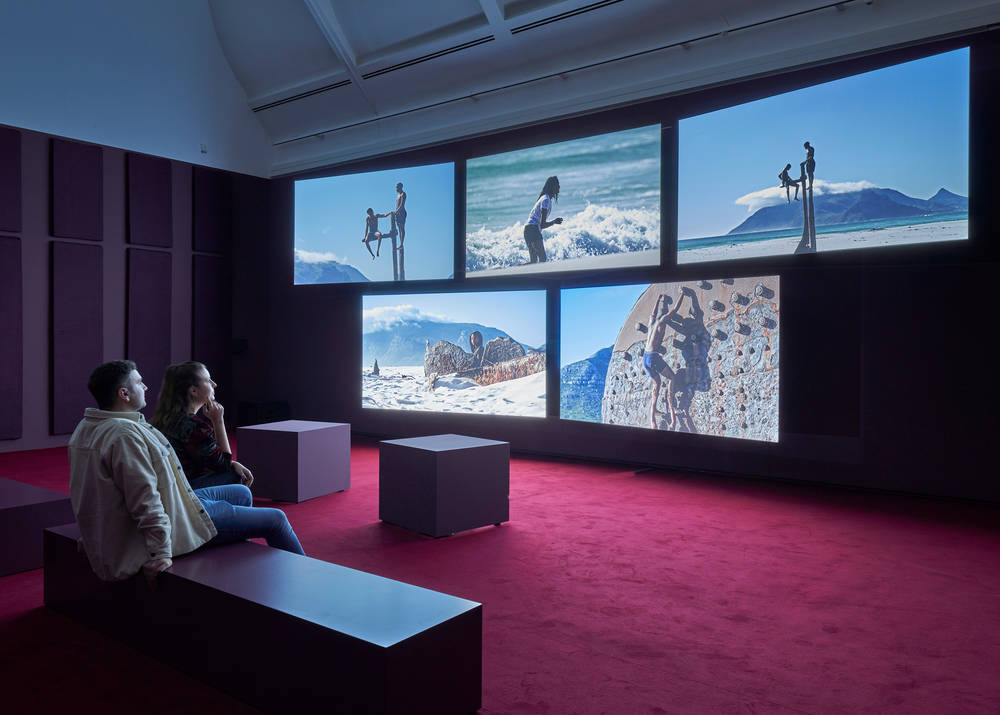What role do empathy and emotions play in the cultural world of today and tomorrow? In the first part of the interview series, curator Julia Grosse talks to Elisabeth Wellershaus about her latest book, the work of John Akomfrah, and changes in the cultural sector.
John Akomfrah’s film installations take a critical look at colonial pasts, global migration, and the climate crisis, yet the artist never loses sight of his empathy for all forms of life. How does the German cultural world view emotions and empathy, and what demands and transformations should cultural institutions meet in the future?
These are the kinds of questions curator Julia Grosse discusses in her multi-part interview series together with Elisabeth Wellershaus, Karina Griffith, and others. The series kicks off with journalist Elisabeth Wellershaus, who was nominated for the German Non-Fiction Prize in 2023 with her book “Wo die Fremde beginnt” (“Where Foreignness begins”).

JG: These days, museums and other cultural institutions are under huge pressure. They have to be a sustainably managed space accommodating many voices, and more diverse in their programs and structure, critical of power, self-critical, and much more besides. Why, in your opinion, is this process of transformation necessary?
EW: If museums are to reflect how our understanding of society and coexistence can change, then they, too, must join in the self-questioning and transformation processes that accompany us in complex environments and times. It is precisely at times like these, when increasingly entrenched populism and the risks of right-wing extremism, on the one hand, confront the struggle for participation and visibility by marginalized groups, on the other, when nature itself is fighting for survival in many places, and when crises are turning into wars, that institutional frameworks are needed where art can criticize, inspire, and shake things up without hindrance. We need open spaces in which culture can set the formats and tones. Where it is not driven by geopolitical or social snaring, and where it can free itself from the dependency of hierarchical institutional structures.
JG: Do you think institutions will look different in a few years’ time? What might you like to see here?
EW: South African curator Molemo Moiloa describes very aptly in her work that museums are above all opening up in those places where they move away from a fixation on objects and towards a more social practice. People don’t just go to museums out of intellectual curiosity. In most cases, it is also a question of being touched from different perspectives. What a wonderful thought it would be if this touchability could also extend to a togetherness between the public, artists, museum employees, and the neighborhoods surrounding the museums.

JG: In the final analysis, Akomfrah’s practice is inspired by a practice of coming together, of caring and healing. By having to endure the fact that there are countless layers between one perspective and another, and that ultimately it is a space we have to share. Do we have to fight more for this space of simultaneity? What’s your view on that?
EW: For me, John Akomfrah is a wonderful reminder that the way we interpret historical events is always personal. And that they can crash into the perceptions of the present at full speed if you shift perspectives by just a few degrees. The flexibility to contextualize things again and again in different constellations is so important in these times. But that’s not the only reason why I could immerse myself in his works for hours; I also find that, on the one hand, they linger in poetic slowness, yet on the other, they invite us to indulge in rapid changes of perspective. Enduring the simultaneity of such narratives also means resisting the positioning reflexes of the present.

JG: Elisabeth, Akomfrah’s work “The Unfinished Conversation” is a kind of homage to the late Stuart Hall that touches in a very poetic way on Hall’s lifelong theme of the complexity of identity, which, according to him, is constantly in flux. Your book “Wo die Fremde beginnt” argues along similar lines, doesn’t it? Can you tell us a bit about it?
EW: I believe that right now there is a rapidly growing longing for clarity in a heterogeneous environment of the many. And here it is all too easy to overlook how great the potential of such diversity is. In my experience, our social potential does not lie in some romanticized visions of a completely happy world of inclusion. Rather, it lies in engaging in and enduring processes of negotiation that can be exhausting and painful, but in which genuine encounters take place. Perhaps it also lies in the willingness to constantly rethink historical certainties, social alliances, and entrenched group affiliations – as a prerequisite for us to keep moving as a community of many.

JG: Specifically in German cultural institutions, there are barely any discourses on love, emotions, and empathy. Why, in your opinion, are these tendencies more than necessary in a cultural institutional context at the present moment?
EW: There have repeatedly been instances of art being appropriated for political ends and ideologically charged, so the languages of the artists threaten to disappear behind some debates. I believe that in this context it is almost always beneficial to slow down because that way one does not lose sight of the act of listening in an overstimulated present. When openness towards the positions of “others” form part of a practice of listening, and people are caring, then surprising moments where people connect often develop out of difference. Right now, I’m reading Corine Pelluchon and thinking: Where space is created for the most diverse narratives of human experience, perhaps there is also room to rediscover some hope in the apparent impossibilities of the present.









